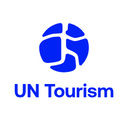International Handbook on Tourism and Peace launched by UNWTO
Providing a unique overview of tourism as a tool in peace building and reconciliation efforts, the International Handbook on Tourism and Peace was launched with the support of the Ministry of Economy, Family and Youth and the Ministry of European and International Affairs of Austria (Vienna, Austria, 29 January 2014).
The Handbook offers a comprehensive collection of perspectives on tourism and peace from leading international specialists with topics ranging from sustainable development and conflict resolution to eco-tourism and heritage preservation and includes several case studies.
On the occasion of the launch, UNWTO Secretary Taleb Rifai stated that "the fundamental experience of tourism – visiting a new place and meeting its people and culture - is a transformative aspect that defines tourism's role as an agent of peace. In this age of travel, I trust that this Handbook will help enhance our understanding of the subject and open up further possibilities to foster tourism as a valuable instrument for peace."
Ms. Elisabeth Udolf-Strobl, Director General of the Austrian Ministry of Economy, which supported the project from the beginning, said: "I am very pleased that an Austrian University is carrying out this project in cooperation with the World Tourism Organization. This proves the internationally recognized competence of Austria in tourism and in the field of peace research."
Ambassador Eichtinger from the Austrian Ministry of European and International Affairs praised tourism for its role in intercultural dialogue and exchanges. Quoting the author Mark Twain, he said: "Travel is fatal to prejudice, bigotry, and narrow-mindedness…."
The editors of the book, Cordula Wohlmuther and Werner Wintersteiner argue that there are different approaches to the complex topic of "tourism and peace" and that the handbook provides a good overview on this .Based on this diversity they conclude that aspects of "peace sensitive" tourism can be carved out and used by various tourism stakeholders and tourists, as well as international and development organizations.
The number of experts contributing both case studies and theoretical approaches makes the Handbook a unique and powerful contribution to the overall discussion about new pathways to peace. Published by the Centre for Peace Research and Peace Education of the Klagenfurt University (Austria), in cooperation with UNWTO, within the framework of their joint 'Tourism and Peace' project, this publication aims to make a substantial academic contribution, while providing also relevant insights for the broader public in presenting tourism as a powerful tool within the international peace building agenda.
Note to editors:
In order to better understand and promote the use of tourism as an instrument for peace, UNWTO launched the project 'Tourism and Peace' in collaboration with the Austrian Government and the University of Klagenfurt, in 2012. The project aims to build a better knowledge on tourism's contribution to peace and elaborate recommendations to maximize the use of tourism in peace building, particularly in conflict prevention and reconciliation efforts.
Tourism as a force for peace is reflected in the UNWTO Global Code of Ethics, a set of guidelines for the development of sustainable and responsible tourism, approved by the UNWTO General Assembly in 1999 and endorsed by the UN General Assembly in 2001.
Useful links:
About UN Tourism
The World Tourism Organization (UN Tourism) is the United Nations agency responsible for the promotion of responsible, sustainable and universally accessible tourism.
As the leading international organization in the field of tourism, UN Tourism promotes tourism as a driver of economic growth, inclusive development and environmental sustainability and offers leadership and support to the sector in advancing knowledge and tourism policies worldwide.
Our Priorities
Mainstreaming tourism in the global agenda: Advocating the value of tourism as a driver of socio-economic growth and development, its inclusion as a priority in national and international policies and the need to create a level playing field for the sector to develop and prosper.
Promoting sustainable tourism development: Supporting sustainable tourism policies and practices: policies which make optimal use of environmental resources, respect the socio-cultural authenticity of host communities and provide socio-economic benefits for all.
Fostering knowledge, education and capacity building: Supporting countries to assess and address their needs in education and training, as well as providing networks for knowledge creation and exchange.
Improving tourism competitiveness: Improving UN Tourism Members' competitiveness through knowledge creation and exchange, human resources development and the promotion of excellence in areas such as policy planning, statistics and market trends, sustainable tourism development, marketing and promotion, product development and risk and crisis management.
Advancing tourism's contribution to poverty reduction and development: Maximizing the contribution of tourism to poverty reduction and achieving the SDGs by making tourism work as a tool for development and promoting the inclusion of tourism in the development agenda.
Building partnerships: Engaging with the private sector, regional and local tourism organizations, academia and research institutions, civil society and the UN system to build a more sustainable, responsible and competitive tourism sector.
Our Structure
Members: An intergovernmental organization, UN Tourism has 160 Member States, 6 Associate Members, 2 Observers and over 500 Affiliate Members.
Organs: The General Assembly is the supreme organ of the Organization. The Executive Council take all measures, in consultation with the Secretary-General, for the implementation of the decisions and recommendations of the General Assembly and reports to the Assembly.
Secretariat: UN Tourism headquarters are based in Madrid, Spain. The Secretariat is led by the Secretary-General and organized into departments covering issues such as sustainability, education, tourism trends and marketing, sustainable development, statistics and the Tourism Satellite Account (TSA), destination management, ethics and risk and crisis management. The Technical Cooperation and Silk Road Department carries out development projects in over 100 countries worldwide, while the Regional Departments for Africa, the Americas, Asia and the Pacific, Europe and the Middle East serve as the link between UN Tourism and its 160 Member States. The Affiliate Members Department represents UN Tourism's 500 plus Affiliate members.
Rut Gómez Sobrino
Principal Media Officer
(+34) 91 567 81 60
UN Tourism
